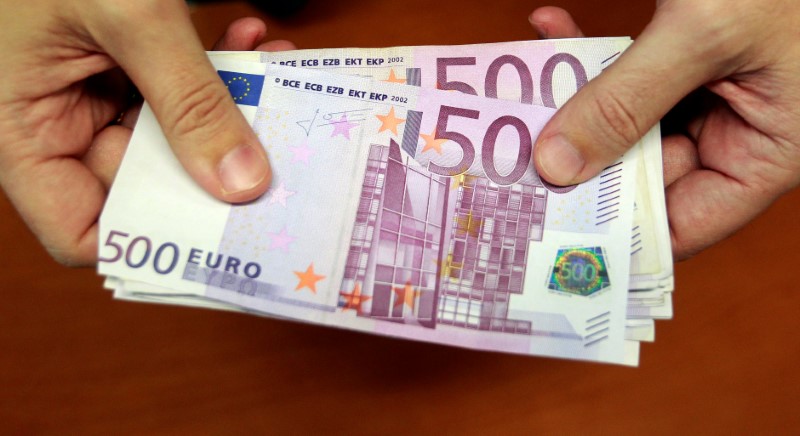By Tommy Wilkes
LONDON (Reuters) - The euro recovered on Wednesday from 10-month lows after reports that Italy's biggest party would make a renewed attempt to form a coalition government and end months of political turmoil.
An attempt by two anti-establishment parties to form a new government in Italy collapsed at the weekend, raising the prospect of an early election. Markets feared that election would become a de facto referendum on Italy's use of the euro.
A source close to 5-Star, the single largest party in the new parliament, said the party would try again to form a coalition with the right-wing League. Without a deal, sources said President Sergio Mattarella could dissolve parliament in the coming days and send Italians back to the polls as early as July 29.
The euro rallied and Italian government bond yields (IT10YT=RR)
A smooth auction of Italian government debt also helped soothe market jitters.
The single currency, which plunged to a 10-month low of $1.1510 on Tuesday, rose as much as 0.7 percent to $1.1624 (EUR=) on Wednesday. It remains down 4 percent this month against the dollar.
Analysts said the euro was still at risk of falling.
"The risk to the euro is predominantly political in the near term ... We are confident that the euro is capped," said Alvin Tan, an FX strategist at Societe Generale (PA:SOGN). The bank doubts the euro can rise much above $1.15 or $1.16 until the Italian crisis is resolved, he said.
After major moves on Tuesday, foreign exchange markets traded on a quieter note.
The euro had dropped 1 percent against the safe-haven Swiss franc on Tuesday in its biggest daily fall since September, but it recovered 0.6 percent to 1.1508 francs (EURCHF=).
Against the yen, the euro rose to 126.285 yen (EURJPY=) after hitting an 11-month low of 124.62 yen overnight, down from about 131 yen last week.
The Swedish crown
The dollar index, measured against a basket of currencies, slipped 0.4 percent to 94.442 (DXY) and below Tuesday's 6 1/2- month high. The dollar remained steady against the yen
Signs of a possible escalation in trade frictions between the United States and China continued to worry investors, after the White House said that it could still impose tariffs on $50 billion of imports from China .
U.S. bond yields have fallen over the past couple of days, undermining the dollar's yield attraction and a key reason for the currency's rally.
That, however, is not stopping analysts from predicting more dollar strength.
Rabobank analysts said that while the pace of the drop in the euro/dollar had outpaced their expectations, they had cut their 12-month euro/dollar forecast to $1.12 from $1.15.

"With market attention firmly back on political risk ... the outlook for the euro has clearly soured. Added to this is our existing arguments regarding the more constructive outlook for the U.S. dollar," the analysts said.